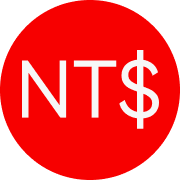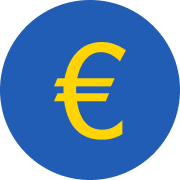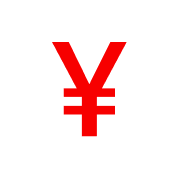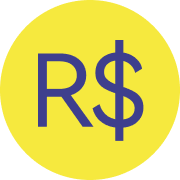



CZK information
About the Czech Koruna (CZK)
What Is the Czech Koruna (CZK)?
The Czech Koruna, denoted as CZK and locally abbreviated as Kč, is the official currency of the Czech Republic. It was introduced on February 8, 1993, when the former Czechoslovakia split into two independent countries: the Czech Republic and Slovakia. This momentous event in the nation's history necessitated the creation of a new currency, leading to the birth of the CZK. The koruna replaced the Czechoslovak koruna, which had been in circulation since 1919, at par value. The Czech Koruna is the sole legal tender in the Czech Republic.
The Czech Koruna is issued and regulated by the Czech National Bank (Česká národní banka, CNB), the central banking authority of the Czech Republic. Established in 1993 after the split of Czechoslovakia, the CNB plays a pivotal role in the country's financial system, managing monetary policy, overseeing the banking sector, and maintaining financial stability.
What Is the History of CZK?
The Czech Koruna (CZK), established in 1993 following the peaceful dissolution of Czechoslovakia, symbolizes the Czech Republic's transition from a Soviet-influenced state to an independent nation. Originating from the Czechoslovak koruna, which had been in circulation since 1919 after the Austro-Hungarian Empire's collapse, the CZK was introduced at par with its predecessor amidst the country's shift to a market-driven economy. This change marked a significant step in integrating the Czech economy into the global financial system. Over the years, the koruna has undergone various modifications, including enhanced security features in banknotes, mirroring the nation's journey through substantial political and economic reforms and symbolizing its sovereignty and financial stability.
Notes and Coins of CZK
Czech banknotes are available in denominations of 100, 200, 500, 1,000, 2,000, and 5,000 CZK. The coins come in 1, 2, 5, 10, 20, and 50 CZK. Notably, the design of these banknotes is a testament to Czech art, featuring historic figures and symbolic imagery.
The initial Czech banknotes were modified Czechoslovakian notes, reflecting the country's transition. In 2018, the 100 and 200 CZK notes were upgraded with enhanced security features to prevent counterfeiting, including color-changing strips and anti-copy patterns.
What Is the Relationship Between CZK and EUR?
The Czech Koruna (CZK) and the Euro (EUR) share a complex yet integral relationship, primarily influenced by the Czech Republic's membership in the European Union (EU) since 2004. Despite being an EU member, the Czech Republic has retained the Koruna as its official currency, opting not to adopt the Euro. This decision allows the Czech government to maintain independent control over its monetary policy. However, the country's economy is deeply intertwined with the Eurozone, making the exchange rate between the Koruna and the Euro particularly significant. Fluctuations in this rate directly impact trade, investment, and economic stability, given the substantial volume of transactions between the Czech Republic and Eurozone countries.
Is CZK a Strong Currency?
Czech Koruna's strength can be considered moderate, reflecting the Czech Republic's stable but modestly sized economy. While it doesn't match the strength of major world currencies like the US Dollar or Euro, the Koruna benefits from the Czech Republic's sound economic policies, low inflation, and steady growth. Its value against major currencies, a critical indicator of strength, has shown resilience, albeit with fluctuations influenced by global economic trends and regional developments. The Czech economy, characterized by a robust industrial sector and increasing integration with the European Union, lends a degree of stability to the Koruna. However, like all currencies, its strength is subject to change due to various external factors, including global market dynamics and geopolitical events.
ENCS to CZK conversion rate trend
How to convert ENCS to CZK



Buy ENCS (or USDT) for CZK (Czech Koruna) offers
| Merchants (trades/completion rate) | Price | Amount/limit Low to high | Payment methods | Zero fees Action |
|---|
Sell ENCS (or USDT) for CZK (Czech Koruna) offers
| Merchants (trades/completion rate) | Price | Amount/limit High to low | Payment methods | Zero fees Action |
|---|
What factors influence the conversion rate of ENCS to CZK?
ENCOINS to Czech Koruna is falling this week.ENCS to CZK Conversion tables
The exchange rate of ENCOINS is decreasing.ENCS to CZK
CZK to ENCS
ENCS to CZK Today vs. 24 hours ago
| Amount | 19:38 today | 24 hours ago | 24h change |
|---|---|---|---|
| 0.5 ENCS | $0.02734 | $0.02569 | +6.45% |
| 1 ENCS | $0.05469 | $0.05138 | +6.45% |
| 5 ENCS | $0.2734 | $0.2569 | +6.45% |
| 10 ENCS | $0.5469 | $0.5138 | +6.45% |
| 50 ENCS | $2.73 | $2.57 | +6.45% |
| 100 ENCS | $5.47 | $5.14 | +6.45% |
| 500 ENCS | $27.34 | $25.69 | +6.45% |
| 1000 ENCS | $54.69 | $51.38 | +6.45% |
ENCS to CZK Today vs. 1 month ago
| Amount | 19:38 today | 1 month ago | 1M change |
|---|---|---|---|
| 0.5 ENCS | $0.02734 | $0.06120 | -55.36% |
| 1 ENCS | $0.05469 | $0.1224 | -55.36% |
| 5 ENCS | $0.2734 | $0.6120 | -55.36% |
| 10 ENCS | $0.5469 | $1.22 | -55.36% |
| 50 ENCS | $2.73 | $6.12 | -55.36% |
| 100 ENCS | $5.47 | $12.24 | -55.36% |
| 500 ENCS | $27.34 | $61.2 | -55.36% |
| 1000 ENCS | $54.69 | $122.4 | -55.36% |
ENCS to CZK Today vs. 1 year ago
| Amount | 19:38 today | 1 year ago | 1Y change |
|---|---|---|---|
| 0.5 ENCS | $0.02734 | $0.3350 | -91.85% |
| 1 ENCS | $0.05469 | $0.6699 | -91.85% |
| 5 ENCS | $0.2734 | $3.35 | -91.85% |
| 10 ENCS | $0.5469 | $6.7 | -91.85% |
| 50 ENCS | $2.73 | $33.5 | -91.85% |
| 100 ENCS | $5.47 | $66.99 | -91.85% |
| 500 ENCS | $27.34 | $334.96 | -91.85% |
| 1000 ENCS | $54.69 | $669.93 | -91.85% |
ENCOINS price prediction
What will the price of ENCS be in 2026?
What will the price of ENCS be in 2031?
Other crypto price predictions
 Bitcoin(BTC)Price predictions
Bitcoin(BTC)Price predictions Ethereum(ETH)Price predictions
Ethereum(ETH)Price predictions Celestia(TIA)Price predictions
Celestia(TIA)Price predictions Solana(SOL)Price predictions
Solana(SOL)Price predictions Worldcoin(WLD)Price predictions
Worldcoin(WLD)Price predictions Bittensor(TAO)Price predictions
Bittensor(TAO)Price predictions Dogecoin(DOGE)Price predictions
Dogecoin(DOGE)Price predictions PepeCoin(PEPECOIN)Price predictions
PepeCoin(PEPECOIN)Price predictions Pandora(PANDORA)Price predictions
Pandora(PANDORA)Price predictions ORDI(ORDI)Price predictions
ORDI(ORDI)Price predictionsBitget Earn
APR
Purchase other cryptocurrencies with similar market cap
Popular ENCOINS Converter










Popular cryptocurrencies to CZK










Discover more cryptocurrencies
Latest coin listings on Bitget
FAQ
What is a cryptocurrency calculator?
How does a cryptocurrency calculator work?
How accurate is a cryptocurrency calculator?
Can I trust the results of a cryptocurrency calculator?
Can I use a cryptocurrency calculator for tax purposes?
Can a cryptocurrency calculator be used to convert one type of cryptocurrency to another?






































